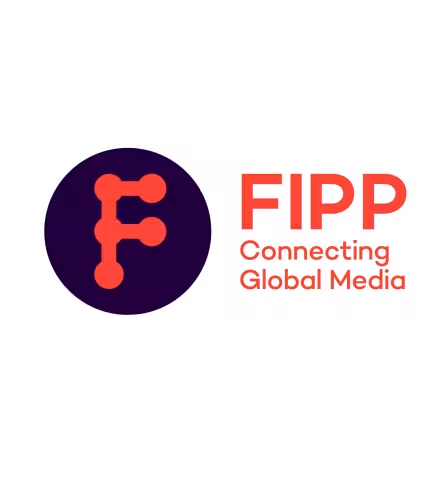Choosing the right e-commerce platform for publishers


E-commerce for publisher: checkout
This article was originally published with InPublishing for their E-commerce special. Our piece specifically focuses on checkout.
Q:What is best practice now?
A: Freedom and flexibility, in short! There’s a myriad of options on the market - from the super niche to the more generalist ecomm platforms. We see success in tools that adapt as your business grows, rather than picking the ones that box you in. The checkout isn’t just the final step in a sale journey, it’s where products, subscriptions, loyalty schemes, offers, search and data all connect.
Good checkout design starts with a strong, vibrant ecosystem of tried and tested, reliable integrations: payment providers, shipping tools, analytics, marketing and CRM platforms, subscription tech amongst many others. Choosing well connecting software means you can plug in whatever you need without needing to rebuild from scratch as your business evolves.
Security, speed and reliability are non-negotiables. What really defines a good checkout is it not existing in total isolation as many industry-bespoke checkouts do. It needs to talk to everything else and allow automated access to data and insights across the whole purchase journey. If you’re still copying and pasting data between systems, or juggling spreadsheets to see all the factors that lead up to and influence checkout, your ecommerce set-up is not yet best practice. A good system lets information flow freely across tools, so you and your team can concentrate on what’s important - customers, not admin!
Personalisation is also super important to consider. Your audience already expects a shopping experience that feels like it’s built for them personally - all the big online retailers have trained them already. By being able to link customer profiles with behavioural data and content engagement, you’re able to give your customers an experience at checkout that recognises their history, preferences and interests. The trick is to use data thoughtfully, creating real value for customers through dynamic recommendations, tailored offers and personalised messages to returning or regular customers.
And finally, there’s the all-important human side. The commerce may be ‘e’ but your customer is not. A good checkout feels effortless. It has a clean layout, minimal steps, clear pricing and no surprises. Abandoned baskets are often the result of journey friction rather than poor product sets so avoid too many clicks, limited payment options or convoluted, confusing forms to complete. Remove the barriers and build confidence.
If you’re looking at ecommerce options now, think of the big picture. Pick one that’s part of an established marketplace with proven partners and open integrations. A publishing specific solution may be tempting because they promise all kinds of tailored features but they can restrict long-term growth.
Embrace the platforms with large and comprehensive selection of apps so that your teams can grow your ecommerce experiences for customers over time. Take time to consider whether the platform allows you to add plugins that seamlessly work with your site rather than require developers to configure them so that your marketing teams and ecommerce teams can experiment and grow revenue.
Instead go for a scalable, flexible platform then tailor the experience to your business by plugging in the publishing focused tools as and when you need them. This approach keeps your checkout experience first class now, while also future proofing your business.
Q: How do you see it changing in the future?
A: The next wave of innovation will make checkouts smarter, faster and even more personal. AI is already reshaping ecommerce experiences through conversational interfaces where readers can renew, buy or manage and order directly from a chat window or voice assistant.
Over time I predict that even the idea of going to the checkout will fade away. Transactions will happen wherever the customer is - in a message, app, or even inside an article they’re reading. Checkout will become less of a page or part of a website and more of a capability of a great ecommerce-optimised digital experience.
Payment continuity is also worth a mention. Most good platforms can handle expired cards and renewals automatically using secure tokens and live payment updates, which will be music to any subscription-led publisher’s ears.
We’re seeing success come in this modular approach to building an ecommerce experience and because of the rate of change and development, see tonnes of merit in following the big dogs rather than creating your own through publishing-specific tools that will struggle to keep up with the pace and demand for proper integration.
Q: What are your three top tips for publishers when it comes to ‘checkout’?
1. Don’t go with a small, publishing-specific ecommerce checkout. They will be your problem as you grow. These systems should be about driving growth, not preventing it.
2. Make sure you and your provider do an audit of your existing landscape of software to see whether your other tools will integrate with your chosen ecommerce. If they don’t then you know what to do!
3. In ecommerce it is time to go with a large marketplace enabled platform that will have integrations with the things you already use and solutions for future needs.
Visiting FIPP 100 in Madrid. The stark realities facing publishers

When I founded Full Fat Things in 2010 I’d recently left The Economist. Whilst I was at The Economist I worked on a great website with a brilliant business model. They charged for content! Who would have thought it would be possible on the internet. They were doing it in the year 2001 when I joined and probably before. Archaic paywalls and payment providers existed then but the whole thing worked and customers happily purchased the print edition as well as the new shiny web edition.
The Economist also loved display advertising and even all the way back then we managed to make it personalised to the audience based upon demographics etc. The paywall would site slightly further back on the site in good advertising years and would lock more content in slow advertising years. How simple, yet effective!
When I left The Economist to start Full Fat Things I was immediately surprised to see companies loving advertising only as a revenue model. We still have some customers doing this now as customers of Full Fat Things. I love all of our customers equally however I’ve always wanted our publishing customers to make more from the content they produce.
So it was a complete joy to go the FiPP conference in its centenary year in Madrid this month to hear the general state of the industry.
Here is a brief commentary on the points that kept coming up…
Ad revenue is falling
Ad revenue is dropping globally for publishers quicker than before. Programmatic revenue is falling through the floor. Publishers continue to need to know more about their audience to be able to sell to them. This of course leads to…
First party data is EVERYTHING
First party data is EVERYTHING. Audiences should be thought about in terms of quality of connection and not quantity of number. Therefore it is fine to allow our audiences to shrink if they are paying for a great connection. So lock up that content away from free eyes and seek that customer connection. Own that connection with the customer, learn about each other and make each other happy. It’s time to have a good old fashioned relationship with your customers. It is time to know more about your customers than Google and Facebook do.
Paywalls and regwalls should be in place to trigger first party data collection and then detailed collection of activities. I’m careful not to say analytics here as people just automatically think about Google Analytics but that is aggregated analytics. I think we need to know what individuals are doing and then segment up rather than segment traffic down from GA and hope that tracks onto users.
The storm clouds of the AI wars are gathering
OpenAI and other AI providers are eating your data and we've seen Silicon Valley take everything they want without care with things like Youtube blatantly hosting copyrighted material before figuring out how to monetise it. Just handing over data and hoping they send clicks is not the way. The general advice was block AI and bots until you cut a deal with them to get paid. Their clicks are tiny and we don’t think that a new GEO strategy is going to get that click rate back up to Google levels.
This is made more complex when you have programmatic ads on your properties by the fact that lots of bots in that world need to access your site. AI and Ads effectively make all of this hard. You can't just block all bots but you should also consider that AI providers will buy data from third parties and they also seed from Common Crawl to get their datasets. So if you think you can just block OpenAI, Perplexity and Claude crawlers then think again.
On a personal note here because Google built a business around the greatest business model in the world with Adwords/Adsense I don’t think the ads business is going away but it will have trouble for a while whilst the AI giants fight like peacocks in the street.
Membership models
There was lots of talk about membership models, like the Guardian, needing a really strong brand that they can lean on to carry them through and that if your brand is not of that calibre then merely encouraging people to pay will not be enough.

Playing for Reach and SEO is slowing quickly
With the prioritisation of reach and SEO being the focus for traffic which is supported by advertising, the quality of the experience once a reader has arrived at publisher websites has diminished. This is damaging brand equity every day and at some point it will be a very uphill struggle to get back from this. Look at this example of how little content you can see on a screen and. not even the full headline. I hate to pick on Reach in this example but it shows that an ads only model is not paying enough to allow for a quality experience. Be careful.
Closing note..
There was one outlier at the event who had dumped their paywall and they claimed quite impressive growth percentages in advertising but I couldn’t help thinking that their growth was because of removing a paying paywall and I wonder whether their overall revenue had grown.
FiPP was great because of the very international publishing audience. It was great because these messages to publishers above were consistent across the conference from the whole world.
For fifteen years we’ve helped publishers and for every one we’ve worked with we’ve encouraged learning about their customers through great data collection and we’ve promoted the idea that content should be paid for by registration walls and paywalls. We even have a publisher product that combines subscriptions, paywalls, a great CMS and fabulous publication system integration.
So just on a personal note I loved having our longstanding message hammered home to everyone that now is the time to go full Jerry Maguire.
Stewart Robinson, Founder of Full Fat Things
How to choose a bespoke software consultancy

So you’ve decided you need a bespoke software company to help your business, but you’re not sure where to begin your search. Finding the right fit requires careful research and planning. You need a software partner with the experience, skills and reliability to help achieve your goals.
Bespoke software consultancies are often full of big promises, but which ones can deliver? And which one is right for your organisation?
What to look for in a bespoke software company
Before you look for a software development partner, get together with your team and other key stakeholders to define your requirements. Whether you plan to modernise your legacy systems or design a mobile app to capture data, you should have a tangible objective in mind. When you’re clear on your goals, the following factors can help you choose the ideal partner for your project.
Portfolio
A reputable company will be happy to share examples of completed projects. What kind of clients do they work with? Are they small and relatively unknown or do they have some big-name enterprises listed? Check to see if they’ve worked with companies in a similar niche to yours, or at least on projects of a similar scale and theme. A company that predominantly partners with start-ups might not be a good cultural fit for multinational corporations. Similarly, if you’re a charity or not-for-profit, you should look for examples of public sector work.
Track record and stability
When you get to the shortlist stage, it’s time to dig deeper. How long has the company been in business? You want a company that has the longevity and project management experience to deliver your bespoke software development services and stick around long after implementation. A company with a high turnover of staff is also a red flag. The consultancy should provide a team that knows your company and its goals inside out – changes to the external team will interrupt the process and communications.
Reviews and social proof
Testimonials, referrals and written reviews are all important ways to verify the credibility of a software company. Ask friends, family and fellow business owners for recommendations. Reviews reveal how they handle client relationships. Avoid companies whose previous projects ended badly or abruptly. After you have looked at various websites, case studies and testimonials, narrow down a shortlist of 3-5 bespoke software consultancies.
Quality assurance and maintenance
No matter how good the team, there will be bugs in the software. A good bespoke software consultancy will ensure quality through functional, load, stress and security testing. This continuous testing will be factored into the budget so you don’t get stung with excessive bug-fixing fees. Your software partner should support you in the long term by being available to fix any issues and regularly review performance.
Process and transparency
A good software company will have tried-and-tested processes for project delivery but remain flexible. Whether the model is Agile, Prince 2, Waterfall, or any other project management method, the consultants should explain it before a contract is signed. Any project should include a period of “discovery” to determine a specification defining responsibilities, the software scope and budget. Again, case studies can help you understand a software developer’s processes – don’t be afraid to ask for a couple of references or to talk to a previous client.
Level of expertise
Determine the level of expertise (across multiple platforms) within the agency. Smaller companies might occasionally need to outsource for specialist work, but there should be a core in-house team. A smaller company isn’t necessarily a problem as they may have specialised in a niche market, but the talent of their employees is essential. Only work with a bespoke software company that has a rigorous recruitment process where developers and architects must pass strict quality control tests. If the company is uncomfortable answering questions about its recruitment process, that’s a red flag.
Case studies
Any decent bespoke software company should have case studies that give you an idea of the challenges it helped organisations overcome. Read case studies of similar brands to your own and check performance statistics. Have they helped those companies achieve any results that align with your goals? For example, perhaps you want to increase subscribers and you see they have proof of achieving that for another company. Are there any brands whose websites you admire? Looking at an agency’s previous work helps you understand what types of businesses it specialises in and whether it is well placed to help you.
Security and copyright policy
Any decent company will prioritise security and back up your system. The intellectual security of your bespoke software can be a little trickier. Because software programs include both functional and design elements, they are subject to different types of Intellectual Property (IP) laws.
Don’t assume you own the source code for the software. A reputable consultancy will share the source code for your application, otherwise your business will be exposed to significant risk. But this needs to be addressed and negotiated before signing any contracts.
Summary
To recap, look for a bespoke software consultancy that:
- Has a track record it can back up with a portfolio, testimonials and reviews
- Is a good cultural fit for your company and you can see yourself having an easy working relationship
- Has a high level of technical expertise and a robust recruitment process
- Is financially stable – it won’t disappear overnight with your code and money
- Has transparent processes
- Provides backups and security
- Is willing to negotiate on copyright